-
-10%
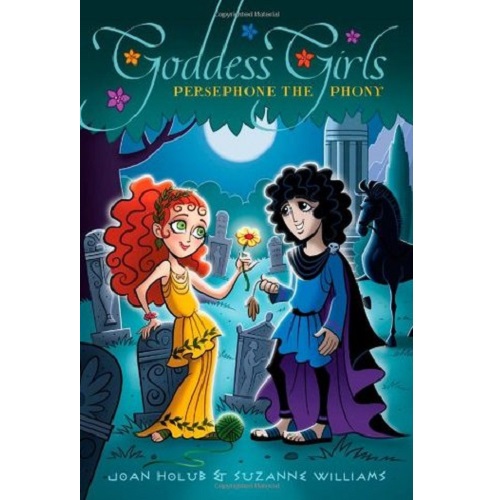
Goddess Girls #2: Persephone the Phony By Joan Holub and Suzanne Williams
Original price was: ₦2,000.₦1,800Current price is: ₦1,800.In Persephone the Phony, Persephone develops a crush on bad-boy Hades. Her mom (Demeter) and friends don’t approve, and Persephone finds herself sneaking around to see him.
-
-10%
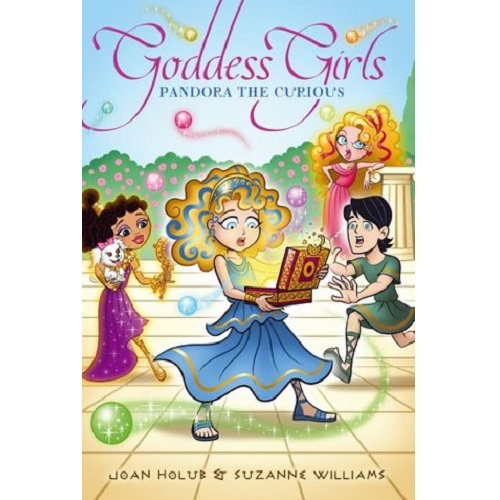
Goddess Girls #9: Pandora the Curious By Joan Holub and Suzanne Williams
Original price was: ₦2,000.₦1,800Current price is: ₦1,800.One of the few mortals at Mount Olympus Academy, Pandora is famous for her mega quizzical nature—not that she thinks there’s anything wrong with being curious, of course!
-
-10%
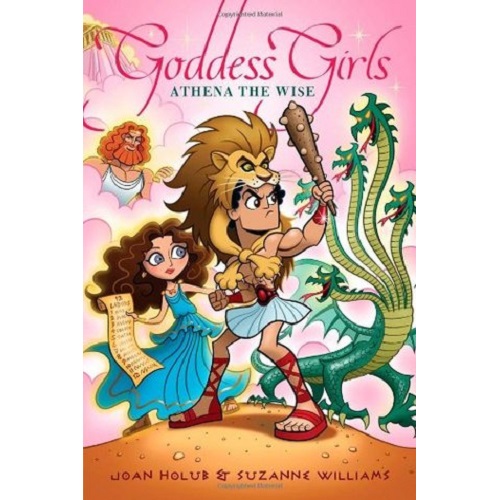
Goddess Girls #5: Athena The Wise by Joan Holub & Suzanne Williams
Original price was: ₦2,000.₦1,800Current price is: ₦1,800.In book 5Athena The Wise by Joan Holub & Suzanne Williams, Principal Zeus asks Athena to help Heracles (aka Hercules in the Roman pantheon) complete his twelve labors. But when Heracles starts borrowing Athena’s friends things without asking, will she be able to help him set things straight?
-
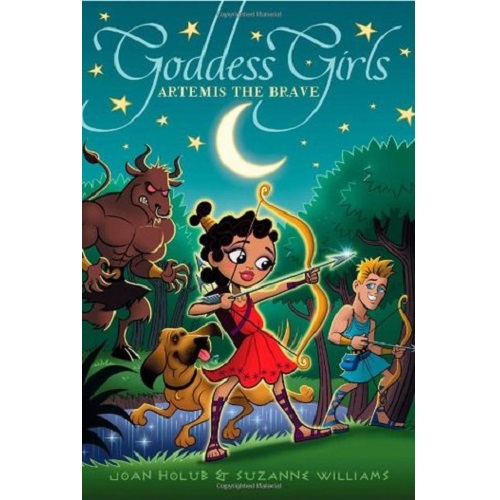
Goddess Girls #4: Artemis the Brave by Joan Holub, Suzanne Williams
₦2,000In Artemis the Brave, Artemis, goddess of the hunt, is always perceived as the bravest goddessgirl at Mount Olympus Academy. What her classmates and best friends don’t realize is that sometimes she isn’t as courageous as she looks.
-
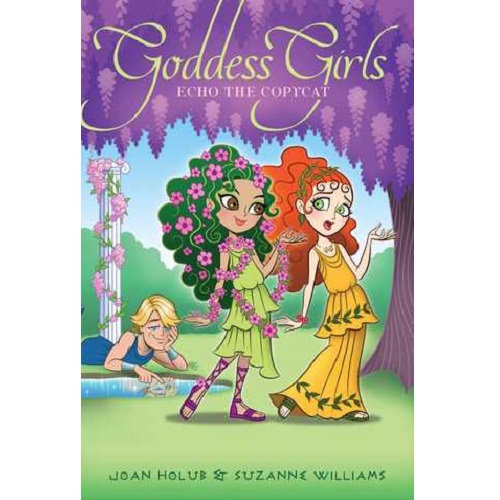
Goddess Girls #19: Echo the Copycat by Joan Holub, Suzanne Williams
₦2,000Echo is a forest-mountain nymph and the new girl at Mount Olympus Academy. She is a little nervous, so she tries to mimic all of the gestures, expressions, and slang of the cool MOA students.
-

Goddess Girls 18: Hestia the Invisible By Joan Holub, Suzanne Williams
₦2,000Hestia feels unseen at Mount Olympus Academy in this eighteenth Goddess Girls adventure.
-

Goddess Girls #20: Calliope the Muse By Joan Holub, Suzanne Williams
₦2,000Calliope, the muse of epic poetry, has trouble putting her bright and fun ideas into action in this twentieth Goddess girls adventure!
-
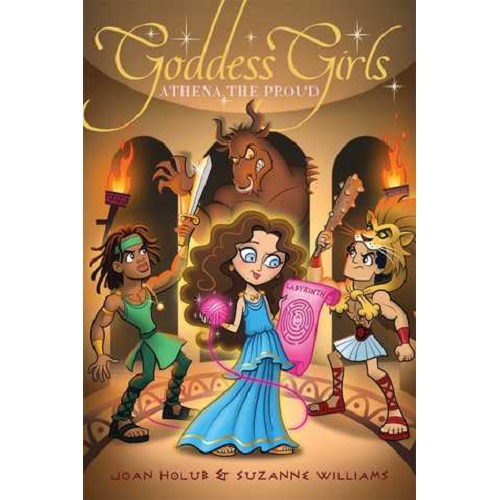
Goddess Girls #13: Athena the Proud By Joan Holub, Suzanne Williams
₦2,000Athena wants to upgrade a labyrinth for King Minos, but her approach causes problems in this Goddess Girls adventure.
-
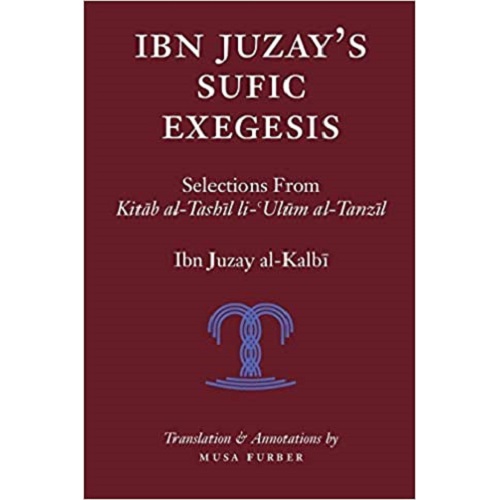
Ibn Juzay’s Sufic Exegesis: Selections from Kitab al-Tashil li-Ulum al-Tanzil
₦3,500Ibn Juzay al-Kalbi began his exegesis of the Quran with an introduction to the various disciplines related to explaining the Quran. One of these topics he included is Sufism. The basic concern of Sufism is the heart: knowing its good and bad qualities, how to rid it of bad qualities, and how to instill it with the good. Sufism is connected to the Quran since the Quran mentions divine knowledge, struggling against the self (nafs), and illuminating and purifying hearts via obtaining praiseworthy character and avoiding blameworthy character. In his work he then covers twelve of these topics: thanks (shukr); Godfearingness (taqwa); remembrance (dhikr); patience (sabr); tawhid; love for Allah; reliance upon Him (tawakkul); vigilance (muraqabah); fear and hope (khawf and raja); repentance (tawbah); and sincerity (ikhlas)
-
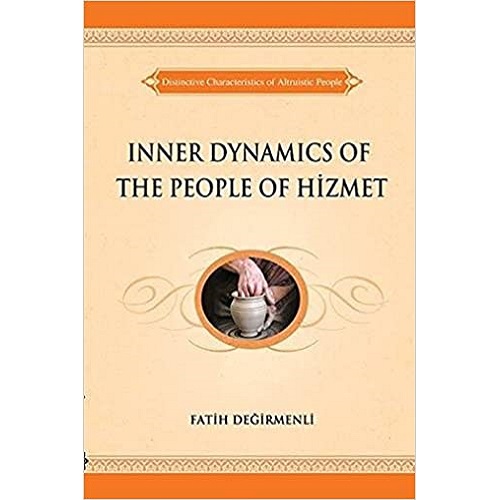
Inner Dynamics of the People of Hizmet Paperback
₦3,500From loyalty and fidelity to modesty and chastity; from suffering and anguish to patience and perseverance; from submission to trust; from sincerity to tolerance… The Inner Dynamics of the People of Hizmet outlines the ideal characteristics of a philanthropic volunteer.
Embodied with such gem-like qualities, a person of Hizmet is the one who feeds his or her soul internally with recitations and worship, as well as externally by being an active member of his or her community.
With eloquent poetry and inspirational reading texts, this book exemplifies the qualities of an ideal person of service and is an essential guide to youth today.
-
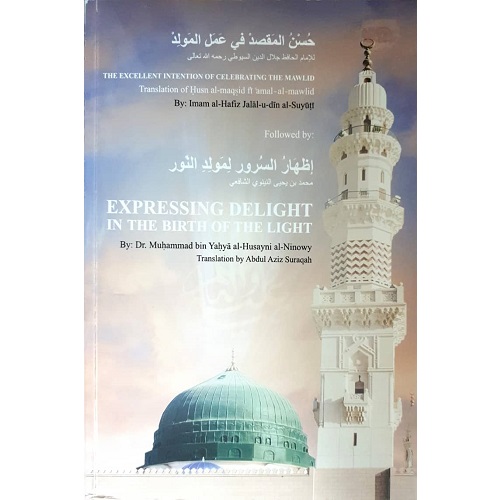
Expressing Delight in the Birth of the Light: Izhar al-Surur li Mawlid al-Nur Paperback
₦3,500To further deepen our love and connection with the Messenger of Allah, may Allah bless him and grant him peace, many hadith masters and scholars considered it worthwhile to take every opportunity – after fulfilling one’s obligations and the Sunna – to make mention of Allah and His Messenger, may Allah bless him and grant him peace. This includes the recommended practice of gathering to celebrate the birth of the Messenger, may Allah bless him and grant him peace. Such celebration ”entails gathering with people, reading a portion of the Qur’an, citing the narrations about the precursors to the Prophet’s mission and the wondrous signs that took place during his birth, and then eating a bit of food and leaving” – nothing more, and without this manner of gathering being considered leagally required in the shari’ah.
-
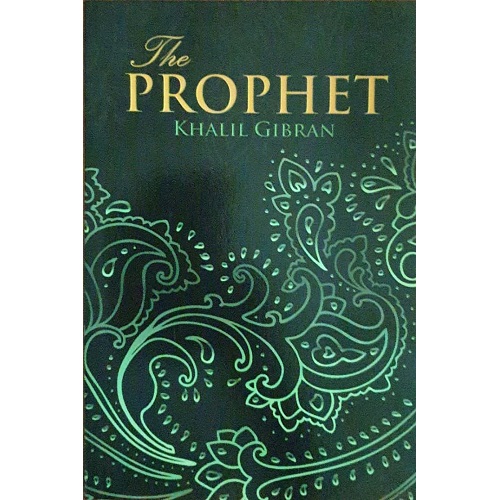
The Prophet by Kahlil Gibran
₦3,000The Prophet is a collection of poetic essays that are philosophical, spiritual, and, above all, inspirational. Gibran’s musings are divided into twenty-eight chapters covering such sprawling topics as love, marriage, children, giving, eating and drinking, work, joy and sorrow, housing, clothes, buying and selling, crime and punishment, laws, freedom, reason and passion, pain, self-knowledge, teaching, friendship, talking, time, good and evil, prayer, pleasure, beauty, religion, and death
